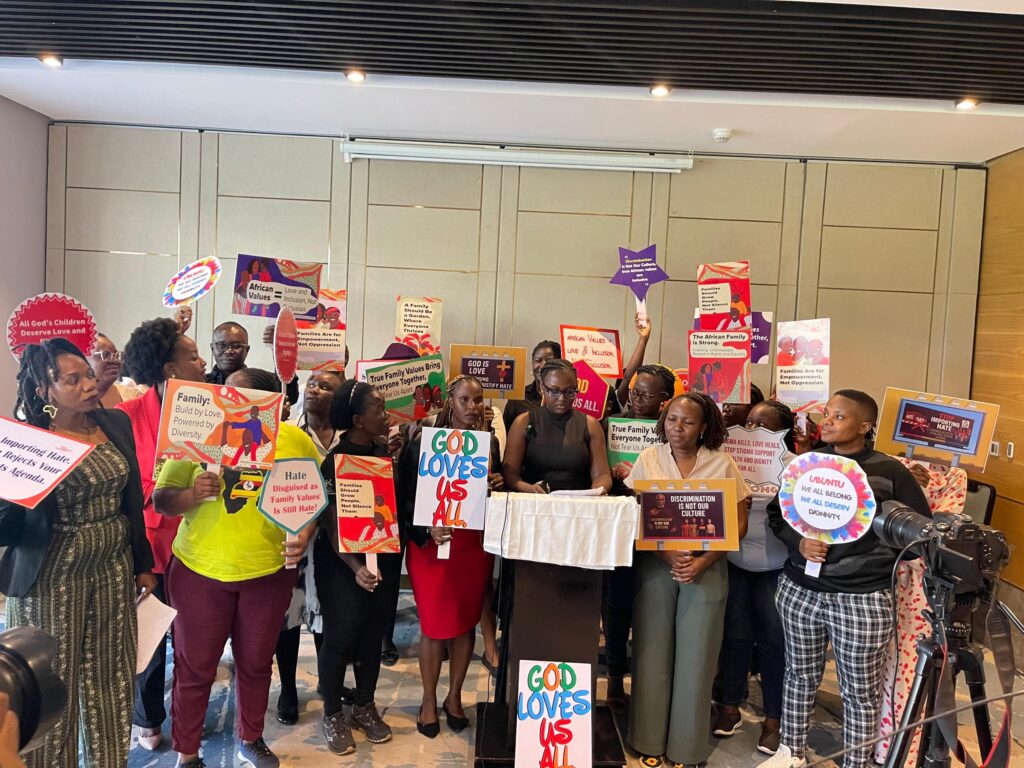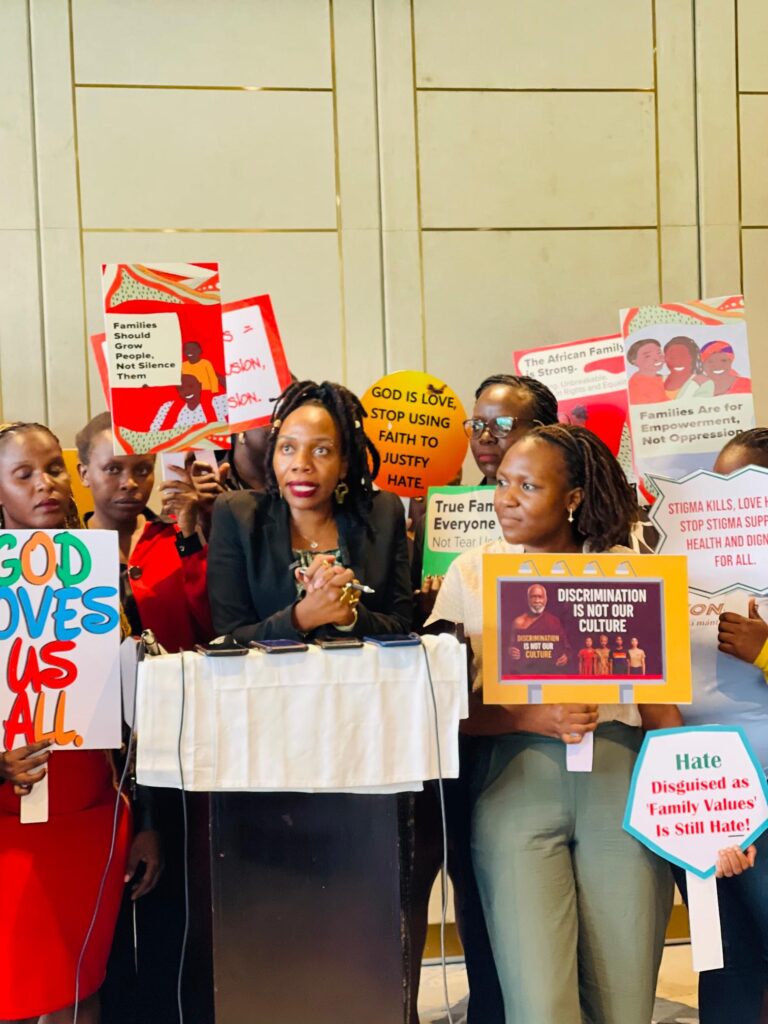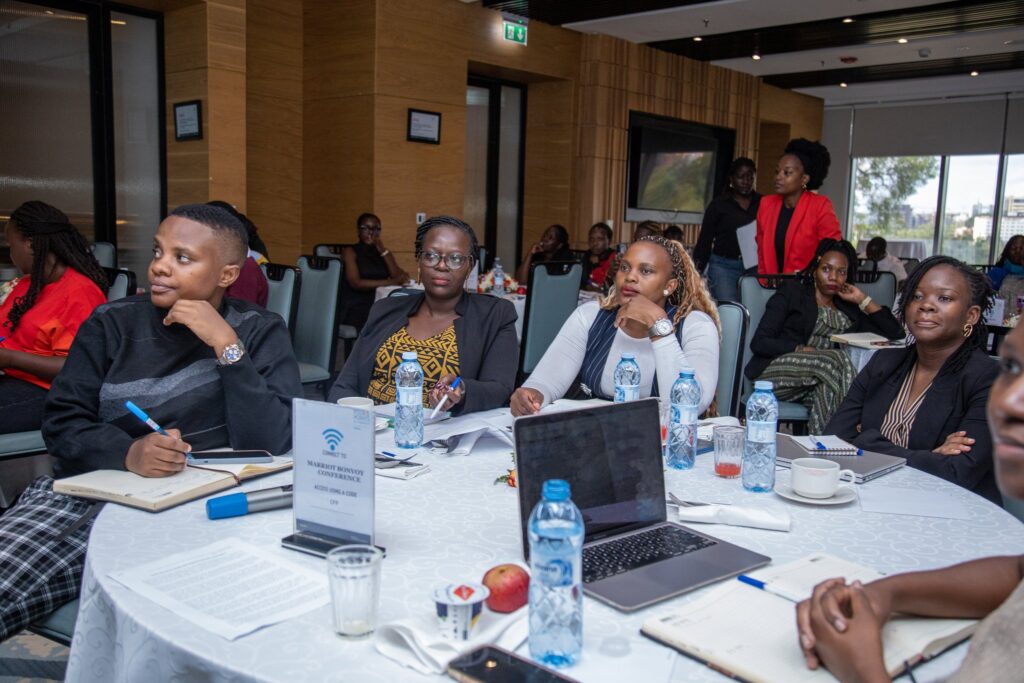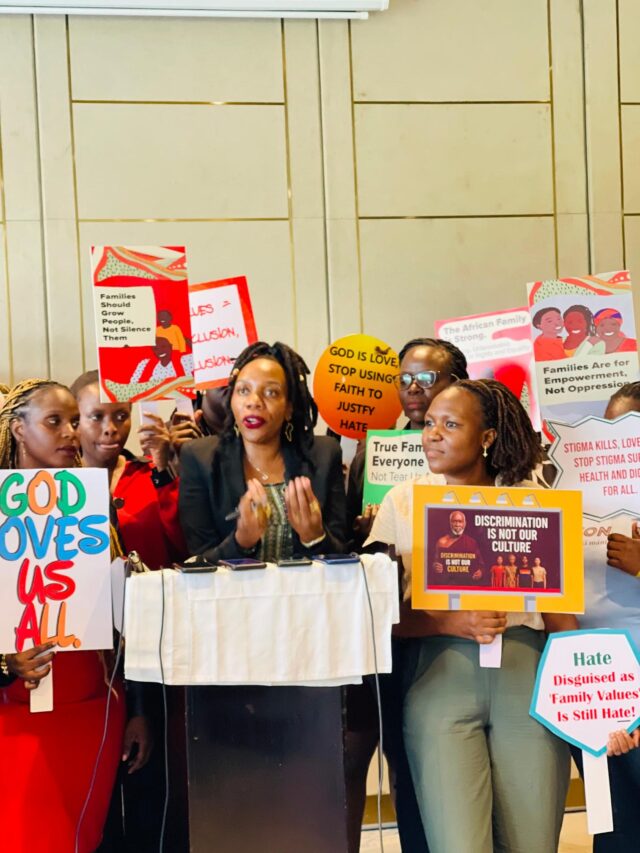
As Uganda hosts the 3rd African Inter-Parliamentary Conference on Family Values and National Sovereignty, it raises important questions for various groups especially women whether they will truly benefit from this conference, or things will remain unchanged, as with the previous two conferences.
The Inter-Parliamentary Conference on Family Values and National Sovereignty, which began today, May 9, 2025, and will run until May 11, 2025, in Entebbe, Uganda, alongside the upcoming Pan-African Conference on Family Values scheduled for May 12–17, 2025, in Nairobi Kenya, are convening to strategize on promoting family values through laws and programs. However, some groups particularly women’s organizations in Uganda feel underrepresented and believe their perspectives and positive contributions are not adequately reflected in the discussions.
It should be noted that the two previous family conferences often reached resolutions that risk stripping women and girls of their basic human rights and dignity, reinforcing exclusion, discrimination, and objectification under the guise of promoting conservative family values.
Although available data in Uganda shows that families are diverse and not monolithic with many being headed by women, children, or grandmothers, the Uganda National Family Protection Policy continues to prioritize and promote the rights of the traditional Christian nuclear family. Similarly, the Ugandan Parliament is currently proposing a Marriage Bill that seeks to criminalize cohabitation and appears to offer greater protections to men than to women within marriage.
This legislative direction has left many women feeling unrepresented, particularly during high-level conferences such as the Inter-Parliamentary Conference on Family Values, where their voices and lived realities should be meaningfully included.
This has prompted women, through their various movements, to express deep dissatisfaction with their lack of representation in Inter-Parliamentary Conferences and other key decision-making spaces.
They believe that meaningful inclusion in these forums would provide an essential opportunity to challenge unfair policies and advocate for gender-equitable approaches. According to these groups, proper representation could significantly influence outcomes and ensure that women’s rights and concerns are not overlooked.
During their breakfast meeting at Four Points Hotel in Kololo organized by the Women’s Probono Initiative in partnership with the SRHR Alliance women leaders and activists emphasized their belief in the importance of happy and peaceful families built on respect for all individuals.
They highlighted that women often stand at the heart of families, taking on the roles of caregivers, nurturers, and the glue that holds families together. However, they also noted that it is within these same family structures that women suffer the most abuse and violence, often with little to no protection provided by either the law or society.
According to the National Survey on Violence in Uganda conducted by UBOS in 2020, 56% of Ugandan women reported experiencing some form of intimate partner violence. In 2024 alone, 10,792 cases of domestic violence against women were reported to the police, highlighting the persistent and widespread nature of gender-based violence in the country.
Speaking to the press after the breakfast meeting, Grace Namataka, the Program Officer at Akina Mama Wa Afrika, explained that they want to see women from all categories well represented, without leaving any groups behind. She expressed concern over the proposed changes to bills such as the Maputo Protocol, a key piece of legislation that protects women’s freedom. Namataka and other activists called upon parliaments to prioritize women’s issues in the discussions of future bills and ensure that these issues are adequately addressed.

Grace, on behalf of the women’s movements, expressed concern over the influence of foreign actors, especially from the US, in dictating what African family values should be. She called upon legislators to resist any foreign influence that could potentially set the continent back in terms of its cultural and family values.
However, these women shared recommendations, that they believe could help create a safer space for women, as presented by Yvonne Mpambara, a social justice lawyer.
1.Calling on our leaders to protect, respect, promote and fulfill the full rights of women and girls as provided for under the African Charter and the Maputo Protocol.
2.Calling for the passing of the Marriage Bill of 2024 after removing regressive clauses that criminalise women and offer them no protection under the law, especially the clause that criminalises cohabitation.
3.Calling for the passing of the Sexual Offences Bill of 2024 after removing the clause that criminalises sex work.
4.Calling for the passing of the EAC SRH bill through the East Africa Legislative Assembly (EALA) in its entirety.
5.Calling for the recognition of the value of unpaid care work throughout all our laws and programs
6.Calling for the prioritisation of the National Social Protection Policy for funding and expanding it to support single parents, unemployed people, and people with disabilities who cannot work through implementing programs designed to support individuals and families going through difficult times, among others

The inaugural African Inter-Parliamentary Conference on Family Values and Sovereignty took place from March 31 to April 1, 2023, at the Imperial Golf Hotel in Entebbe, under the theme: “Protecting Our Families, Protecting Our Future.” Uganda went on to host the second conference from May 1 to 3, 2024, at the Imperial Resort Beach Hotel in Entebbe, themed: “Reaffirming Our African Family and Cultural Values.” The third edition, currently underway from May 9 to 11, 2025, in Entebbe, is expected to continue the discussions initiated in the previous conferences.






